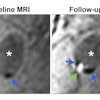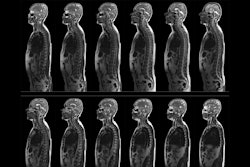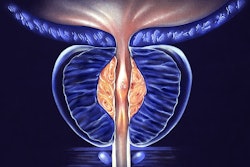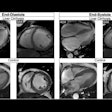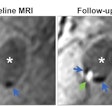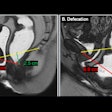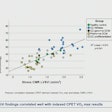MRI reveals that even mild traumatic brain injury (TBI) has far-reaching effects on brain health, researchers have reported.
The findings could translate to better patient care, wrote a team led by Audrey Low, PhD, of the University of Cambridge in the U.K. They were published on 15 August in JAMA Network Open.
"[Our study found that] detectable changes in brain imaging and clinical features were associated with remote, even mild, TBI in the general population," the group noted. "The potential contribution of vascular injury to TBI-related neurodegeneration presents promising avenues to identify potential targets, with findings highlighting the need to reduce TBI through early intervention and prevention in both clinical care and policymaking."
TBIs are a risk factor for dementia, Low's group explained. But even though vascular changes in people who have sustained a TBI have been documented in clinical literature -- particularly in contact sports athletes -- the connection between TBI-associated changes in brain imaging and clinical outcomes in a general, cognitively healthy population hasn't been fully explored.
The researchers explored any associations between TBI midlife changes in neuroimaging and clinical features in 617 healthy adults between the ages of 40 and 59 via a study that included data from the PREVENT Dementia program between 2014 and 2020; the team analyzed the data between January 2023 and April 2024, assessing lifetime TBI history using the Brain Injury Screening Questionnaire (BISQ).
All of the study participants underwent 3-tesla MRI. The investigators identified any cerebral microbleeds or other symptoms of cerebral small vessel disease (such as white matter hyperintensities, lacunes, or perivascular spaces) and assessed brain health by tracking individuals' cognition, sleep, depression, gait, and cardiovascular disease risk using the following tools: the Computerized Assessment of Information Processing (COGNITO), the Pittsburgh Sleep Quality Index, the Center for Epidemiologic Studies Depression Scale, clinical interviews, and the Framingham Risk Score (this last is based on age, systolic blood pressure, use of antihypertensive medication, current smoking, diabetes, and cholesterol).
Overall, the team found the following:
- One-third of study participants reported at least one TBI with loss of consciousness.
- Patients with prior TBI were more likely to be current smokers (odds ratio, 2.48).
- Cerebral microbleeds were found in one of six participants. TBI was associated with higher microbleed counts (β = 0.10, p=0.03) but wasn't associated with other measures of small vessel disease, including increased white matter hyperintensities.
- TBI showed more influence than cardiovascular disease factors such as diabetes and high blood pressure when it came to memory deficits but was not a key contributor to attentional deficits.
The study results highlight the need to further investigate the effects of TBI on brain health, according to the authors.
"[We report that] history of TBI, even mild TBI, was associated with detectable alterations in clinical and neuroimaging measures as early as midlife," they concluded. "These findings highlight the potential brain health consequences of TBI and provide one possible pathological mechanism driving TBI-related neurodegeneration … [Our research underscores] potential intervention targets for dementia prevention in patients with TBI, and avenues for future research."
The complete study can be found here.



